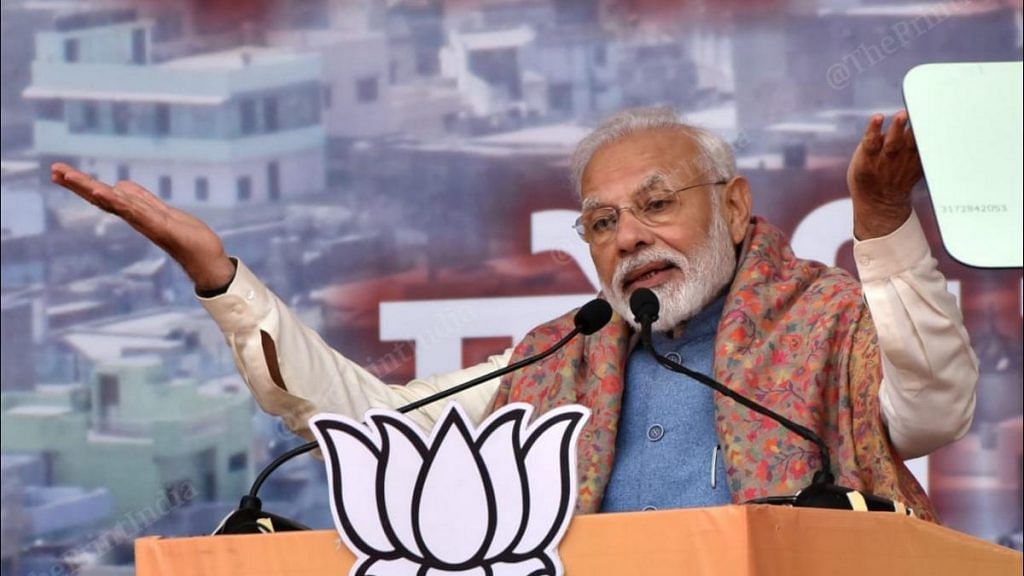Even if we ignore the fact that the Indian economy is in a severe slowdown, we should not forget even for a moment that India’s per capita GDP is around $2000, it needs to create around 2 crore jobs every year, and needs every little point of economic growth that it can get.
So, in terms of the level of income, India is in the same league as Congo, East Timor, Nicaragua, and Nigeria. Two of India’s subcontinental neighbours, Maldives and Sri Lanka, are far ahead of us. At around $10,000, the average income in China is 400 per cent higher than India’s. Given our tax/GDP ratios, the Indian government’s combined expenditure on everything — including health, education, defence, rural development, and social welfare — is a paltry $300 per year.
In other words, the Indian government can only spend less than a dollar a day per person from all the revenues it raises. This is the main reason why India has poor quality government schools, too few government hospitals, terrible roads in cities, and generally unsatisfactory public services.
If the per capita incomes were higher, the Indian government’s tax collections would be higher and it would be able to deliver better public services.
Also read: Why no one in Modi govt met Amazon’s Jeff Bezos this time and instead rudely snubbed him
Can’t afford
Why is this relevant? Because a country with a low per capita income of $2000 ought to be looking for every possible way to raise economic growth and attract investment. So, the manner in which the Narendra Modi government treated an investor who committed to invest $1 billion into the Indian economy is just wrong, whatever its political undertones. In the global competition to attract foreign direct investment (FDI), India is not only competing with Bangladesh, Vietnam and China; it is competing with the developed world economies of the United States, Europe and Singapore. Giving a potential investor a cold shoulder not only discourages that investor, but also sends a negative signal to global investors. If your per capita income is $60,000, perhaps you can afford such damage. At $2000, India simply cannot.
Every investor and investment will encounter some opposition from some quarters of the economy. No company likes competitors with deep pockets. It should not surprise us that there are firms, individuals and political parties that do not like Amazon. Countries that ignore such protests and open their doors for foreign investors prosper. Countries that don’t — and India was among them before 1992 — don’t.
Also read: Modi govt must learn — instinctive response not always best solution to economic problems
FDI is linked to reputation
Also, investors usually play up big numbers to attract public attention, while the reality might be different. We should not be surprised if Amazon’s billion-dollar investment commitment falls short. Yet, a credible investor who announces a huge commitment to India signals to others that India is a good place to put your money on. If investment commitments didn’t matter, what were the Vibrant Gujarat summits all about then?
In fact, a lot of the FDI that flows into India does so merely because of India’s reputation and track record. Unlike countries that receive many times more FDI than India, New Delhi doesn’t have a serious, professional, global investment promotion agency. Countries like Singapore, Australia, Britain, China and Switzerland have offices in all of the world’s financial and business hubs staffed with hundreds of specialists tasked with the singular mission of bringing more FDI into their country. Investment promotion is a hard sales job and countries have to do it to succeed in the marketplace for FDI. Contrary to what many in New Delhi believe, every investor has a lot of options. The bigger the investor, the greater the options. The costs of publicly rebuffing credible investors can be significant and hard to reverse.
Also read: If 10 years from now you see 30 types of onions in Indian markets, this is how it happened
See the ground reality
In my conversations with various investors in several United States cities over the past couple of weeks, I encountered near-universal concern over the economic slowdown, social unrest and Prime Minister Narendra Modi’s political disinterest in addressing either of these issues. The good news was that most investors were still positive about India and had seen good returns on their investment in recent times. The not-so-bad news was that almost everyone I spoke to were asking questions about the future.
One emerging markets investor in the Bay Area told me that when they do not trust institutions to be independent and competent, they begin to reduce their investment horizons. This means that while FDI inflows to a country will continue, the kind of companies, projects and sectors they will go into will change. India needs long-term investors who will help build its infrastructure, factories and development centres that can create jobs and the desirable kind of development. These investors create new winners and spread out the prosperity. But if investors decide that the long-term is too risky, they might go for short-term investment in existing companies, thereby narrowing the number of winners. Managing the socio-political consequences of this kind of development will be tricky.
Despite the slowdown, India’s reputation of being a dynamic growth economy still weighs in its favour. Yet the uncalled-for controversy over Jeff Bezos is an opportunity for the Modi government to calmly reflect on the ground realities and the national interest. The ground reality is an average per capita income of $2000, over 20 crore young people who need jobs, and an economy that has slowed down to 5 per cent growth. The national interest is 8 per cent economic growth, which cannot be achieved without sustained growth in foreign investment.
The author is the director of the Takshashila Institution, an independent centre for research and education in public policy. Views are personal.
